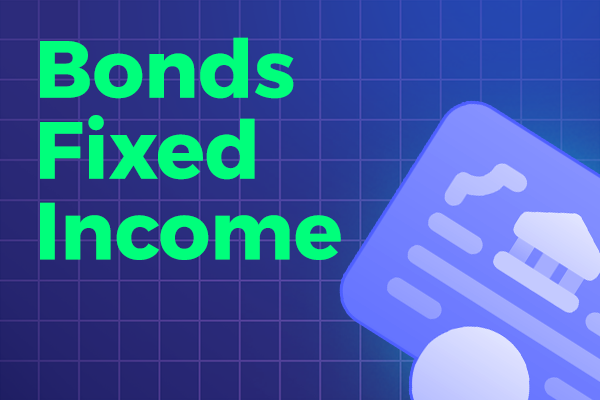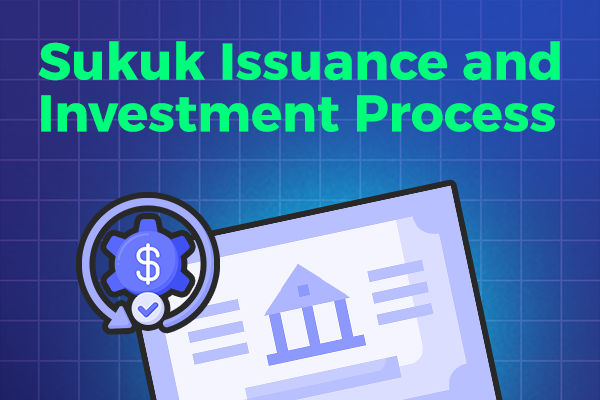As an investor, you are always looking for ways to diversify your portfolio and secure a steady stream of income. Fixed-income investments, such as bonds, are an excellent option for achieving this goal. But, with so many types of bonds available, it can be overwhelming to decide which ones are the best fit for you. In this article, we will explore the pros and cons of two popular types of bonds: government and corporate bonds.
Government bonds are issued by the government and are considered to be some of the safest investments out there. On the other hand, corporate bonds are issued by companies and can offer higher yields but come with more risks. By understanding the benefits and drawbacks of these two options, you can make an informed decision when it comes to investing in fixed income. So, let’s dive in and explore the world of government and corporate bonds!
What are government bonds?
Government bonds are debt securities issued by a government to raise money for public spending. When you invest in government bonds, you are essentially lending money to the government, and in return, you receive interest payments. These bonds are generally considered to be some of the safest investments out there since they are backed by the full faith and credit of the government. In other words, the government has the power to tax its citizens to repay its debt, so the risk of default is relatively low.
One of the main advantages of investing in government bonds is their low risk. Since they are backed by the government, the likelihood of default is minimal. This makes them an excellent option for investors who are looking for a reliable source of income and want to preserve their capital. Another advantage of government bonds is their liquidity. They are traded on the open market, which means you can buy and sell them easily. This makes them a popular choice for investors who want to have quick access to their money.
However, there are also some drawbacks to investing in government bonds. One of the main disadvantages is their low yield. Since they are considered to be low-risk investments, the interest rates on government bonds are generally lower than other types of bonds. This means that if you are looking for higher returns, government bonds may not be the best choice for you. Additionally, government bonds are subject to inflation risk. If inflation rises, the value of your investment may decrease, and the interest payments you receive may not keep up with the rate of inflation.
Pros and cons of investing in government bonds
Pros
– Low risk
– Liquidity
– Reliable source of income
– Backed by the government
Cons
– Low yield
– Inflation risk
What are corporate bonds?
Corporate bonds are debt securities issued by companies to raise money for various purposes, such as financing expansion plans or refinancing existing debt. When you invest in corporate bonds, you are essentially lending money to the company, and in return, you receive interest payments. Corporate bonds are generally riskier than government bonds since they are not backed by the government. However, they can offer higher yields to compensate for this increased risk.
One of the main advantages of investing in corporate bonds is their higher yield. Since they are considered to be riskier than government bonds, the interest rates on corporate bonds are generally higher. This means that if you are looking for higher returns, corporate bonds may be a good choice for you. Additionally, corporate bonds can offer diversification benefits. By investing in bonds issued by different companies, you can spread out your risk and reduce the impact of any single company’s financial troubles.
However, there are also some drawbacks to investing in corporate bonds. One of the main disadvantages is their higher risk. Since they are not backed by the government, the risk of default is higher. This means that if the company that issued the bond goes bankrupt, you may lose some or all of your investment. Additionally, corporate bonds can be less liquid than government bonds. This means that it may be more difficult to sell your bonds if you need to access your money quickly.
Pros and cons of investing in corporate bonds
Pros
– Higher yield
– Diversification benefits
Cons
– Higher risk
– Less liquid
Understanding bond ratings and credit risk
When it comes to investing in bonds, understanding bond ratings and credit risk is crucial. Bond ratings are assigned by credit rating agencies, such as Moody’s and Standard & Poor’s, and are used to determine the creditworthiness of a bond issuer. The ratings range from AAA, which is the highest rating, to D, which means the bond has defaulted. A higher rating indicates a lower risk of default, while a lower rating indicates a higher risk of default.
Credit risk is the risk that the issuer of a bond will default on its payments. The credit risk of a bond is determined by several factors, including the financial strength of the issuer, the economic environment, and the terms of the bond. Investors should be aware of the credit risk associated with any bond investment and should consider the bond ratings when making investment decisions.
Factors to consider when choosing between government and corporate bonds
When deciding between government and corporate bonds, there are several factors to consider. One of the main factors is your risk tolerance. If you are a conservative investor who is looking for a low-risk investment, government bonds may be the best choice for you. On the other hand, if you are a more aggressive investor who is willing to take on more risk for higher returns, corporate bonds may be a good fit.
Another factor to consider is the yield. If you are looking for higher returns, corporate bonds may be a better option since they generally offer higher yields than government bonds. However, if you are more concerned with preserving your capital and having a reliable source of income, government bonds may be a better choice.
Finally, you should also consider the creditworthiness of the issuer. As mentioned earlier, bond ratings can be a helpful tool for assessing credit risk. If you are investing in corporate bonds, be sure to research the financial strength of the issuer and the credit rating of the bond before making a decision.
Different types of bonds – municipal bonds, treasury bills, and junk bonds
In addition to government and corporate bonds, there are several other types of bonds that investors may consider. Municipal bonds are issued by state and local governments and are generally exempt from federal taxes. Treasury bills are short-term debt securities issued by the government with maturities of one year or less. Junk bonds, also known as high-yield bonds, are issued by companies with lower credit ratings and can offer higher yields but come with higher risks.
Investors should be aware of the unique characteristics and risks associated with each type of bond before investing.
How to invest in bonds
Investing in bonds can be done in several ways. One option is to purchase individual bonds through a broker or online platform. Another option is to invest in bond mutual funds or exchange-traded funds (ETFs), which offer diversification benefits and can be a more convenient way to invest in bonds.
Before investing in bonds, it is important to research the issuer and the terms of the bond. Additionally, investors should consider their investment goals, risk tolerance, and overall portfolio diversification when making investment decisions.
Conclusion – Which bond is right for you?
In conclusion, both government and corporate bonds can be excellent options for fixed-income investors. Government bonds offer low risk and reliable income, while corporate bonds can offer higher yields and diversification benefits. When deciding between the two, investors should consider their risk tolerance, investment goals, and the creditworthiness of the issuer.
Ultimately, the right choice will depend on your individual circumstances and investment objectives. By understanding the pros and cons of government and corporate bonds and doing your due diligence, you can make an informed decision and build a diversified fixed-income portfolio that meets your needs.


